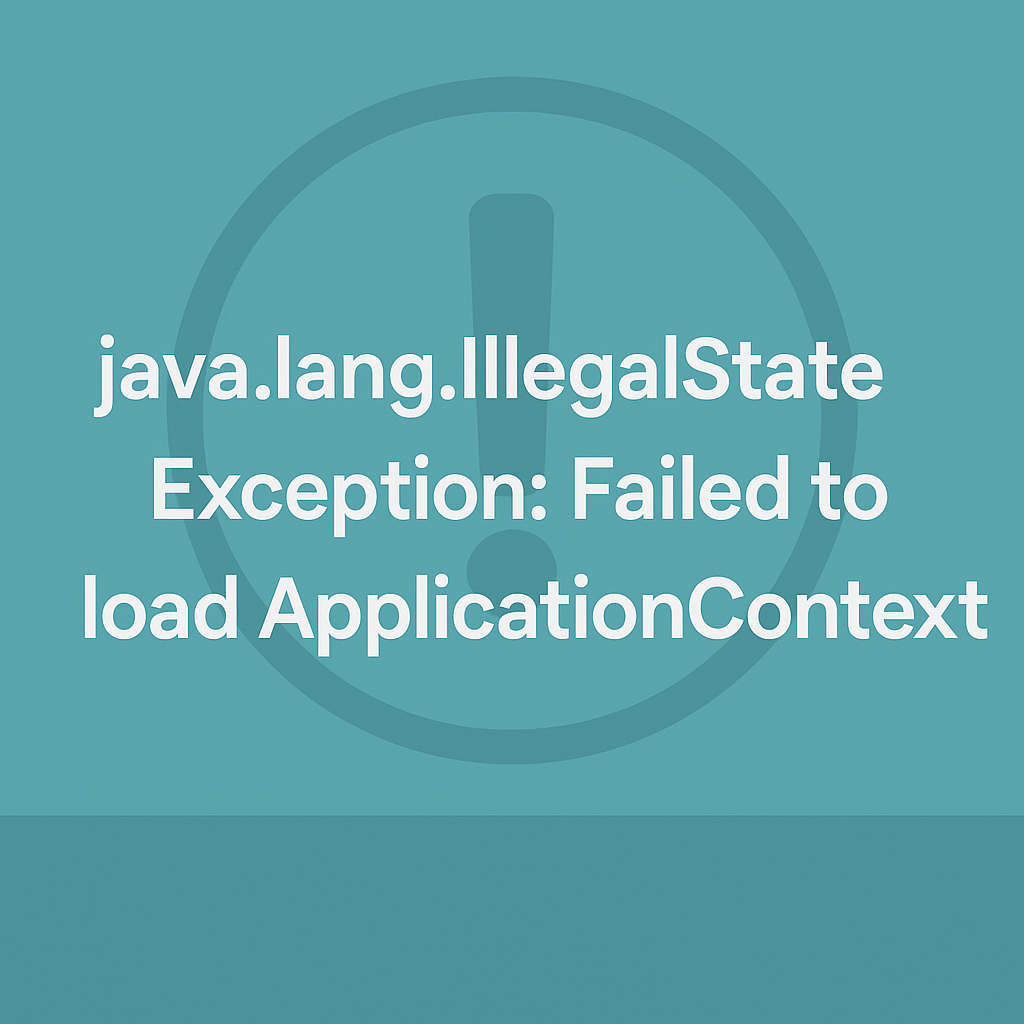
The Problem
When running integration tests in a Spring Boot application that connects to Cassandra, you might hit this error:
java.lang.IllegalStateException: Failed to load ApplicationContext
Caused by: com.datastax.oss.driver.api.core.connection.ControlConnection$NoHostAvailableException:
All hosts tried for query failed (tried: /127.0.0.1:9042
(com.datastax.oss.driver.internal.core.connection.ControlConnection))
This means the Cassandra driver is attempting to connect to 127.0.0.1:9042, but it fails.
Why It Happens
Spring Boot loads the Cassandra configuration and assumes a database is available. The driver attempts to open a connection, but:
- No Cassandra instance is running locally
- Or the keyspace doesn’t exist
- Or the tests aren’t supposed to use Cassandra at all
By default, integration tests load the same ApplicationContext as the application, including Cassandra beans.
Solutions
1. Start Cassandra Before Tests
If your tests require a real Cassandra instance:
- Run Cassandra locally (
cassandra -f) before executing tests. - Or use Docker:
docker run --name cassandra-test -p 9042:9042 -d cassandra:latest
Make sure the keyspace and schema are initialized before tests run.
2. Use Testcontainers for Cassandra
A modern approach is to spin up a Cassandra container automatically during tests:
@Testcontainers
@SpringBootTest
public class CassandraIntegrationTest {
@Container
static CassandraContainer<?> cassandra =
new CassandraContainer<>("cassandra:4.1")
.withInitScript("schema.cql");
@DynamicPropertySource
static void cassandraProperties(DynamicPropertyRegistry registry) {
registry.add("spring.cassandra.contact-points", cassandra::getHost);
registry.add("spring.cassandra.port", cassandra::getFirstMappedPort);
}
}
This ensures tests always have a clean, disposable Cassandra instance.
3. Mock Repositories / Services
If your tests don’t actually need Cassandra:
- Replace Cassandra repositories with mocks (e.g., Mockito).
- Use
@MockBeanin your Spring Boot tests:
@MockBean
private MyCassandraRepository cassandraRepository;
This avoids hitting the database entirely.
4. Exclude Cassandra Auto-Configuration in Tests
If only some tests need Cassandra, you can exclude it for others:
@SpringBootTest
@EnableAutoConfiguration(exclude = { CassandraAutoConfiguration.class })
class NoCassandraTest {
// test logic without Cassandra
}
Conclusion
The NoHostAvailableException isn’t a Spring bug—it just means your tests are trying to connect to Cassandra when none is available.
- Start Cassandra manually or via Docker
- Use Testcontainers for a portable test setup
- Or mock/exclude Cassandra if it isn’t needed
With these fixes, you can upgrade your Spring Boot tests without being blocked by missing Cassandra hosts.